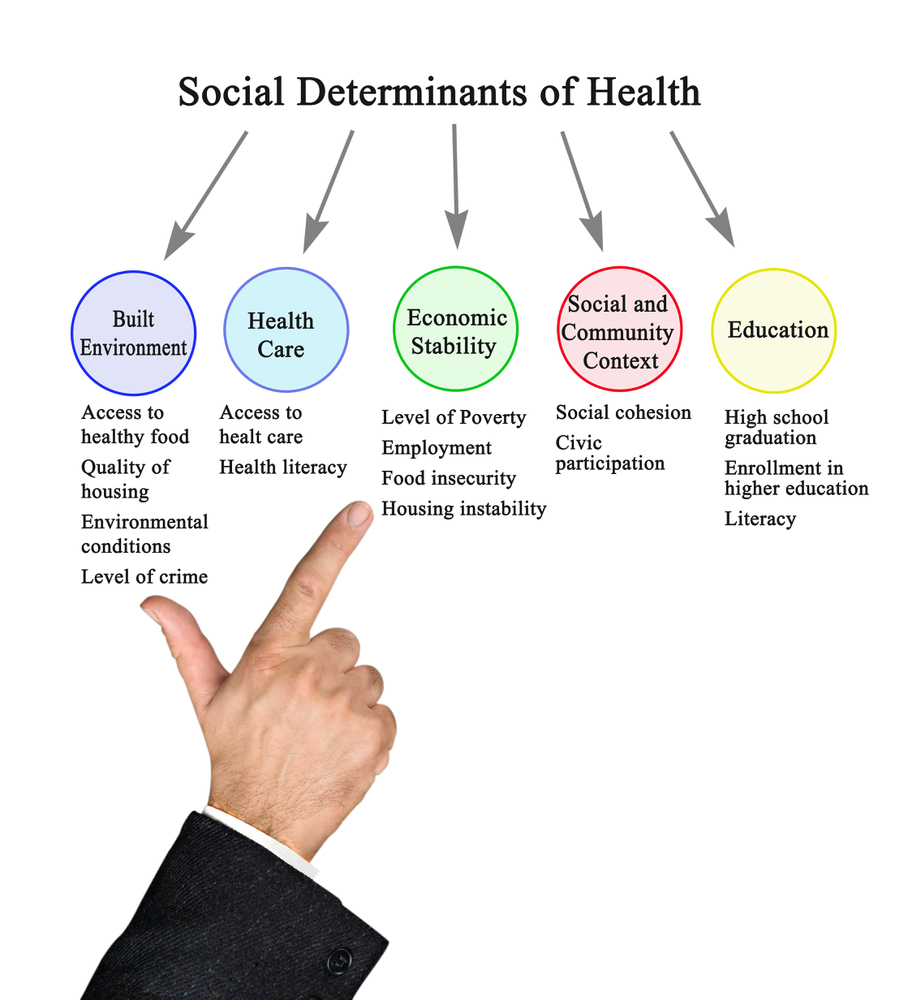A new study published in the Journal of Psychiatric and Mental Health Nursing finds that food insecurity is linked to severe mental illness (SMI).
The research, led by Jo Smith of Teesside University in the UK, reports that 41% of adults diagnosed with SMI experience food insecurity (limited/uncertain access to safe and nutritious food). This makes people diagnosed with SMI 3.31 times more likely than those without SMI to experience food insecurity. Beyond the link between SMI and food insecurity, there is also some evidence that food insecurity is a risk factor for developing SMI.
The authors write:
“This review found that the prevalence estimate for food insecurity in adults with SMI living in high- or upper-middle-income countries is 41% compared to 17% for comparators without SMI. Furthermore, adults with SMI were 3.31 times more likely to experience food insecurity than comparators without SMI.”
The evidence suggesting that food insecurity is a risk factor for developing severe mental illness (SMI) counters the traditional argument that SMI inherently leads to dysfunction and then social issues by reversing the causal direction. It demonstrates that social determinants, such as the stress and deprivation caused by food insecurity, can precede and contribute to the onset of SMI. This challenges the biomedical model’s emphasis on SMI as primarily an internal pathology that leads to social dysfunction, instead pointing to external, systemic issues like food insecurity as upstream causes of mental health challenges. This shift underscores the need to address socio-economic conditions as part of prevention and treatment strategies for SMI.
















As a follow-up to this article, I’d like to suggest that a study be done on the mental state and motivations of food company executives, operators of chain restaurants, school cafeteria providers, and supermarket owners, as well as enablers in so-called regulatory agencies and the media, who knowingly produce, promote, or acquiesce in the distribution of chemical-laden toxic products that contribute to the proliferation of cases of diabetes, obesity, cancer, and other severe illnesses among countless people worldwide. (To cite one random example, I have read about particularly alarming rates of diabetes among Mexican children as a result of widespread consumption of sugary soft drinks.) So, why don’t researchers and clinicians focus their attention on those involved in this vast corrupt network, not just on its unfortunate victims who allegedly suffer from severe mental illness? To anyone familiar with the workings of the capitalist system and the psychiatric establishment–its venal handmaiden and compliant enforcer of social control–the answer should be readily evident….
Report comment
Thank you, Joel. Psychiatry undeniably serves as capitalism’s “venal handmaiden and compliant enforcer of social control.”
The statistic that “41% of adults diagnosed with ‘serious mental illness’ experience food insecurity (limited or uncertain access to safe and nutritious food)” prompts an essential question: could the underlying issue reside not in ‘mental illness,’ as suggested, but rather in a lack of vital resources necessary for survival?
This data underscores the need for a deeper examination of why privileged and uneducated ‘experts’ often attribute social inequality primarily to individual ‘mental health’ issues. It may be more accurate to perceive this situation as a result of insufficient essential resources—rooted in the greed inherent in capitalism—combined with the consequences of prescribed neurotoxic drugs, the stigma associated with dubious diagnoses, and the prevalence of chemically processed foods. Rather than hastily categorizing this issue as specific to ‘serious mental illness,’ adopting a broader perspective might lead to a more comprehensive understanding.
Report comment
It’s devastating locally and also as it’s being used on the world’s stage.
Report comment